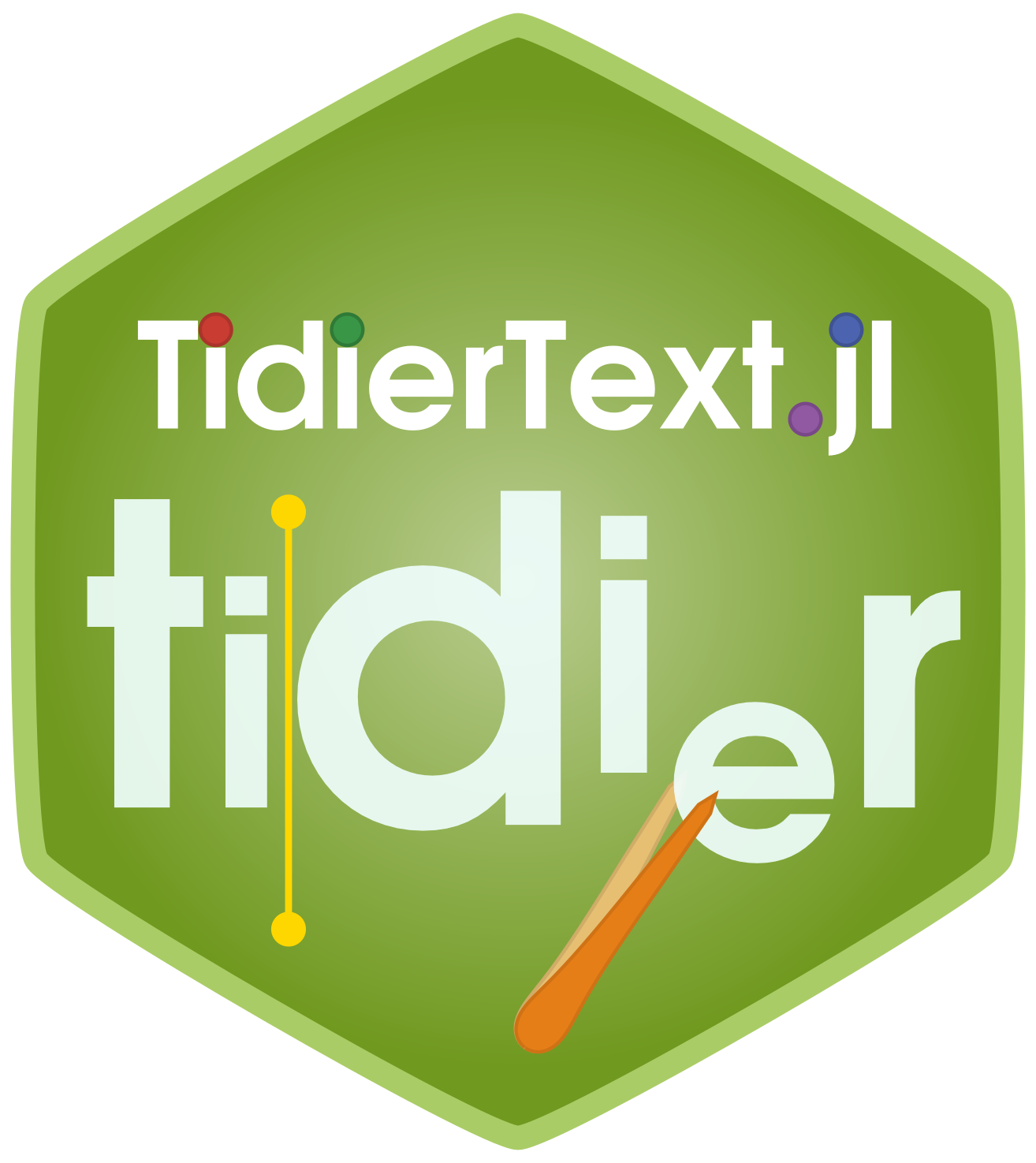TidierText.jl is a 100% Julia implementation of the R tidytext package. The purpose of the package is to make it easy analyze text data using DataFrames.
An extensive guide to tidy text analysis by Julia Silge and David Robinson is available here: https://www.tidytextmining.com/.
For the development version:
using Pkg
Pkg.add(url="https://github.com/TidierOrg/TidierText.jl")@bind_tf_idf()@unnest_tokens()@unnest_regex()@unnest_characters()@unnest_ngrams()get_stopwords()tidy()nma_words
using TidierData
using TidierText
using CSV
courses = CSV.read(download("https://vincentarelbundock.github.io/Rdatasets/csv/openintro/ucla_f18.csv"), DataFrame)@chain courses begin
@select(id = rownames, course)
@slice(1:10)
end10×2 DataFrame
Row │ id course
│ Int64 String
─────┼──────────────────────────────────────────
1 │ 1 Leadership Laboratory
2 │ 2 Heritage and Values
3 │ 3 Team and Leadership Fundamentals
4 │ 4 Air Force Leadership Studies
5 │ 5 National Security Affairs/Prepar…
6 │ 6 Introduction to Black Studies
7 │ 7 African American Musical Heritage
8 │ 8 UCLA Centennial Initiative: Arth…
9 │ 9 UCLA Centennial Initiative: Soci…
10 │ 10 Student Research Program
tokens = @chain courses begin
@select(id = rownames, course)
@slice(1:10)
@unnest_tokens(word, course, to_lower = true)
end;
@chain tokens @slice(1:10)10×2 DataFrame
Row │ id word
│ Int64 SubStrin…
─────┼─────────────────────
1 │ 1 leadership
2 │ 1 laboratory
3 │ 2 heritage
4 │ 2 and
5 │ 2 values
6 │ 3 team
7 │ 3 and
8 │ 3 leadership
9 │ 3 fundamentals
10 │ 4 air
@chain tokens begin
@count(id, word)
@bind_tf_idf(word, id, n)
@slice(1:10)
end10×6 DataFrame
Row │ id word n tf idf tf_idf
│ Int64 SubStrin… Int64 Float64 Float64 Float64
─────┼──────────────────────────────────────────────────────────
1 │ 1 leadership 1 0.5 1.20397 0.601986
2 │ 1 laboratory 1 0.5 2.30259 1.15129
3 │ 2 heritage 1 0.333333 1.60944 0.536479
4 │ 2 and 1 0.333333 0.916291 0.30543
5 │ 2 values 1 0.333333 2.30259 0.767528
6 │ 3 team 1 0.25 2.30259 0.575646
7 │ 3 and 1 0.25 0.916291 0.229073
8 │ 3 leadership 1 0.25 1.20397 0.300993
9 │ 3 fundamentals 1 0.25 2.30259 0.575646
10 │ 4 air 1 0.25 2.30259 0.575646

